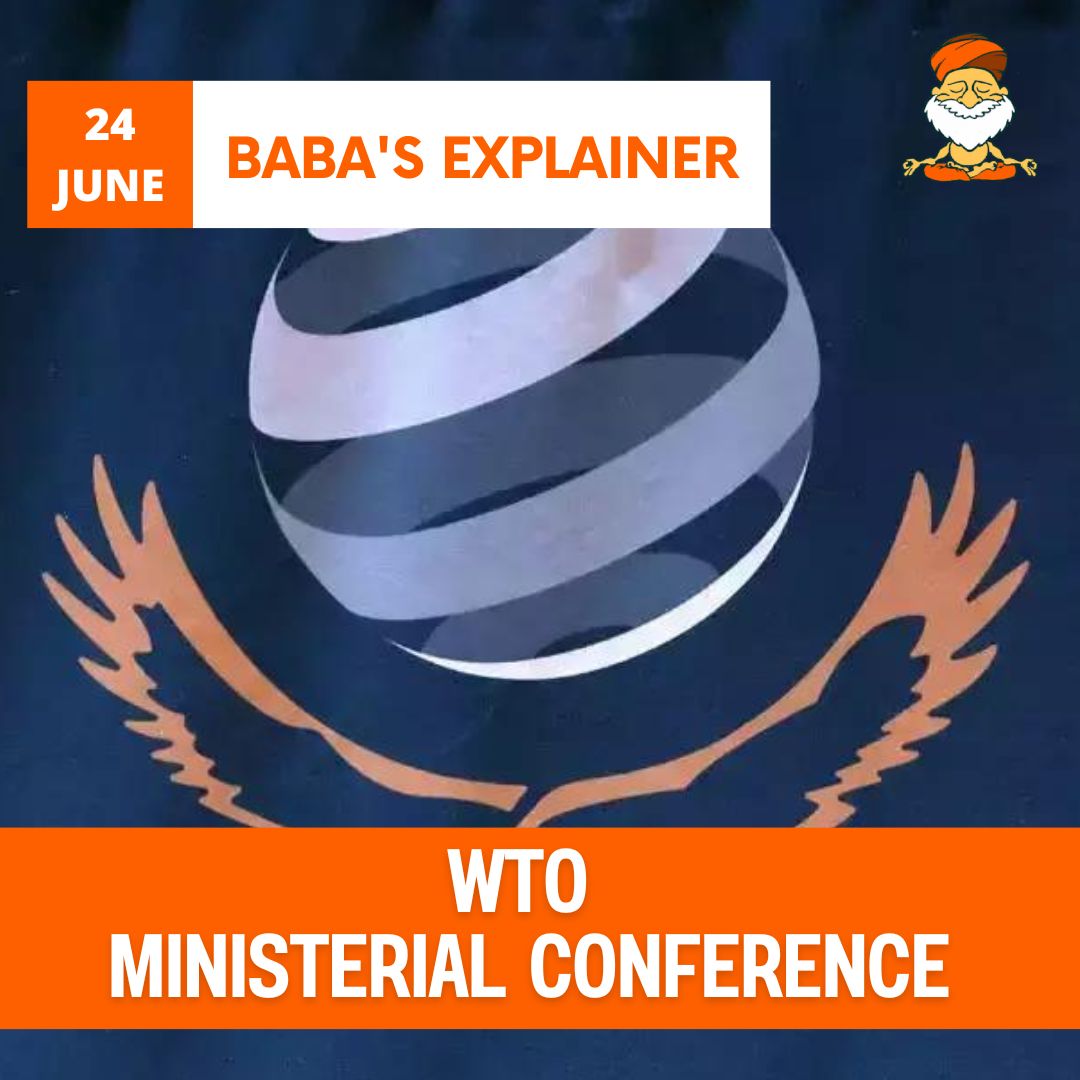WTO reform
- Members reaffirmed the foundational principles of the WTO and committed to an open and inclusive process to reform all its functions, from deliberation to negotiation to monitoring.
- Notably, they committed to work towards having a well-functioning dispute settlement system accessible to all members by 2024. The appellate body has been dormant since 2020 as the United States refused to agree the appointment of new judges.
Why that’s important: The organization has struggled to deliver on its mandate for multiple reasons, including members failing to live up to notification requirements, impeding debate on new issues and objecting to the functioning of its dispute settlement mechanism.
- Pandemic response
- It was decided that eligible countries could override COVID-19 vaccine patents until 2027.
- Member countries agreed on authorising the use of the subject matter of a patent for producing COVID-19 vaccines by a member country, without the consent of the rights holder.
- Further, it asks member countries to waive requirements, including export restrictions, set forth by WTO regulations to supply domestic markets and member countries with any number of vaccines.
- The decision on whether to extend this to COVID-19 therapeutics and diagnostics was delayed for six months.
- Members reiterated the importance of trade facilitation and the operation of cross-border services such as logistics, health services and IT in combating future pandemics.
- Noting the severe effect of border restrictions on tourism, countries encouraged dialogue to mitigate this.
Why that’s important: A feeling that commercial considerations outweighed human health would be severely damaging to global trade. Countries need to ensure trade helps, and is seen to help, health outcomes.
- E-commerce
- The moratorium on customs duties on electronic transmissions (the ‘e-commerce moratorium‘) was extended, a critical win for the digital economy.
- WTO members agreed to maintain the current practice of not imposing customs duties on electronic transmissions until MC13.
- Broadly, Electronic transmissions (ETs) consist of online deliveries such as music, e-books, films, software and video games. They differ from other cross-border e-commerce since they are ordered online but not delivered physically.
- 105 countries which includes the U.S. , the U.K., Australia, China and Japan among others , had sought an extension of the moratorium.
- On the other hand, India and South Africa, citing data from the UNCTAD submitted that extending duty-free market access due to the moratorium resulted in a loss of $10 billion per annum globally — 95% of which was borne by developing countries.
Why that’s important: This agreement maintains relative freedom for digital trade.
- Agriculture and food security
- In the midst of a global food crisis, with wheat prices 60% higher in June 2022 than they were in January 2021, there was pressure for the WTO to deliver a meaningful outcome on trade and food security.
- Members promised to ensure that any emergency food security measures would be minimally trade distortive, “temporary, targeted and transparent” and notified to the WTO.
- They also agreed not to prohibit or restrict food exports purchased by the World Food Programme for humanitarian purposes.
- Beyond these outcomes, Members were unable to agree on a work programme for future negotiations in agriculture due to longstanding differences.
Why that’s important: These actions can help tackle food security risks stemming from the war in Ukraine and poor harvests.
- Fisheries subsidies
- Global fisheries subsidies were estimated at $35.4 billion in 2018, of which $22.2 billion were capacity-enhancing subsidies. The WTO was tasked by the UN General Assembly to deliver an agreement to prohibit harmful fisheries subsidies.
- Following a 21-year long negotiation, agreement was reached at WTO Ministerial Conference 2022 to end subsidies to illegal, unreported and unregulated (IUU) fishing and to the fishing of overfished stocks.
- Developing country members will enjoy a two-year exemption for subsidies granted within their exclusive economic zones (up to 200 nautical miles from their coasts).
- No member will be allowed to provide subsidies to fishing in the high seas, other than where regulated by a fisheries management organization.
- The agreement contains notification requirements and sets up a voluntary funding mechanism to assist developing countries.
Why that’s important: While the current agreement limits, rather than eliminates, subsidies, the measure represents a step towards crafting trade rules and practice that can better protect the planet.















